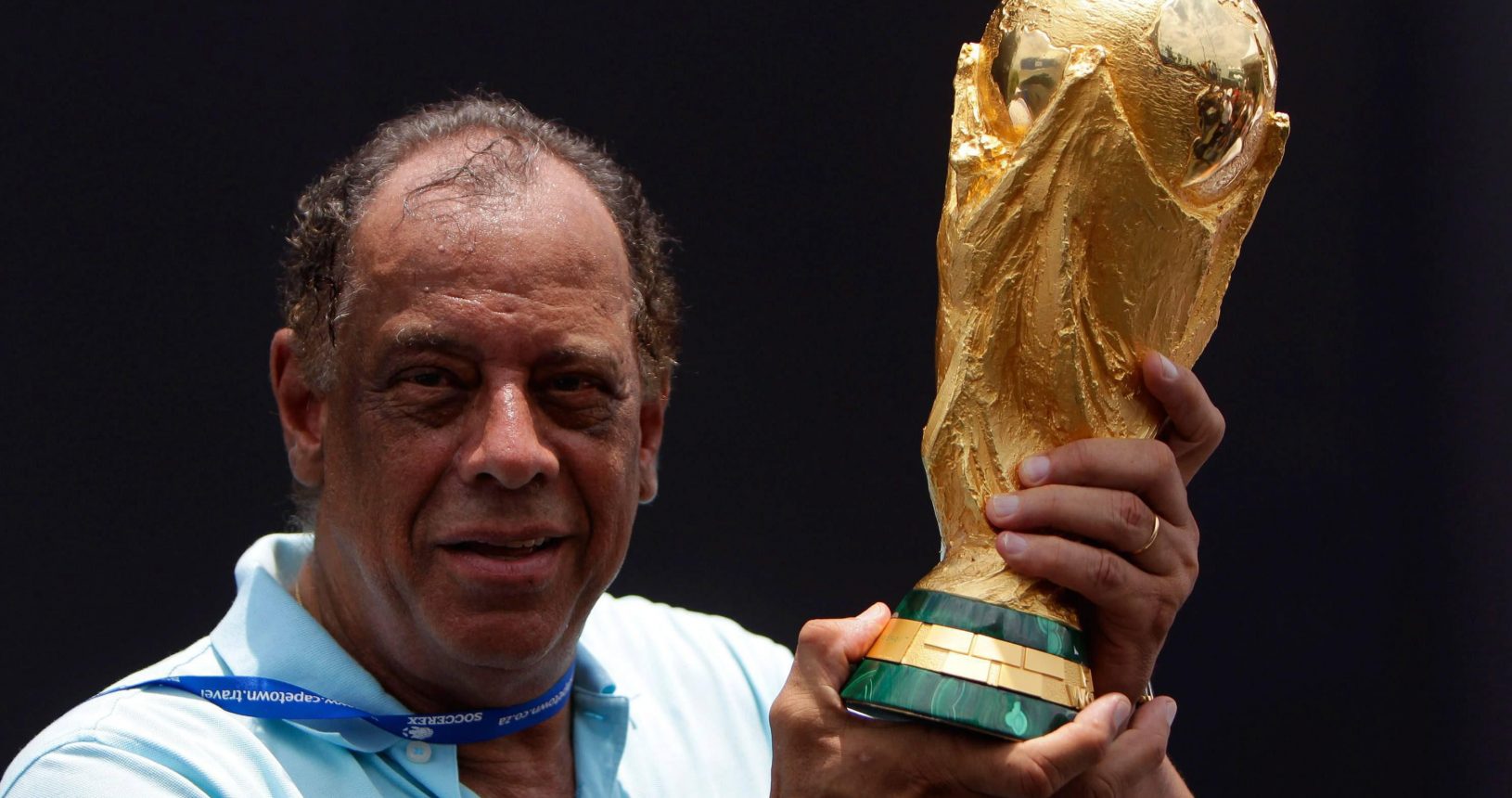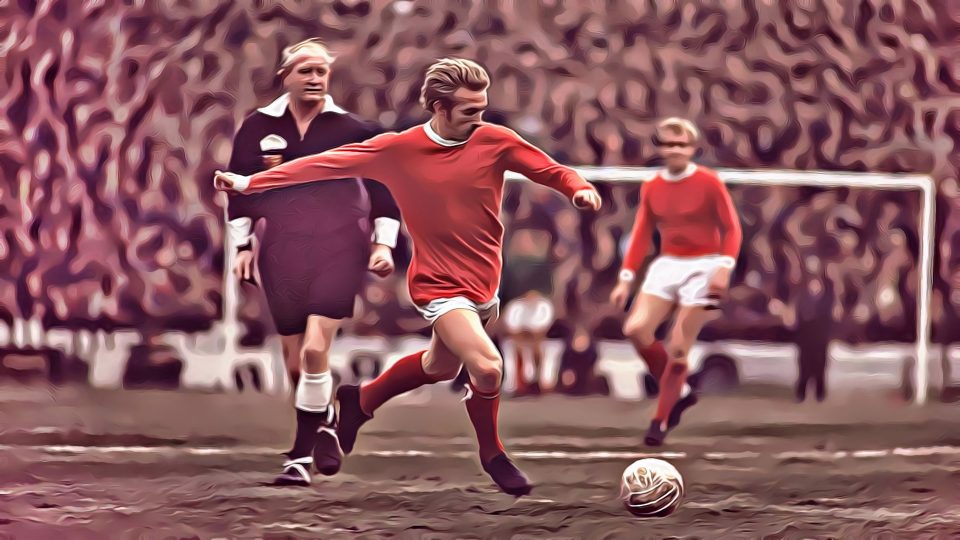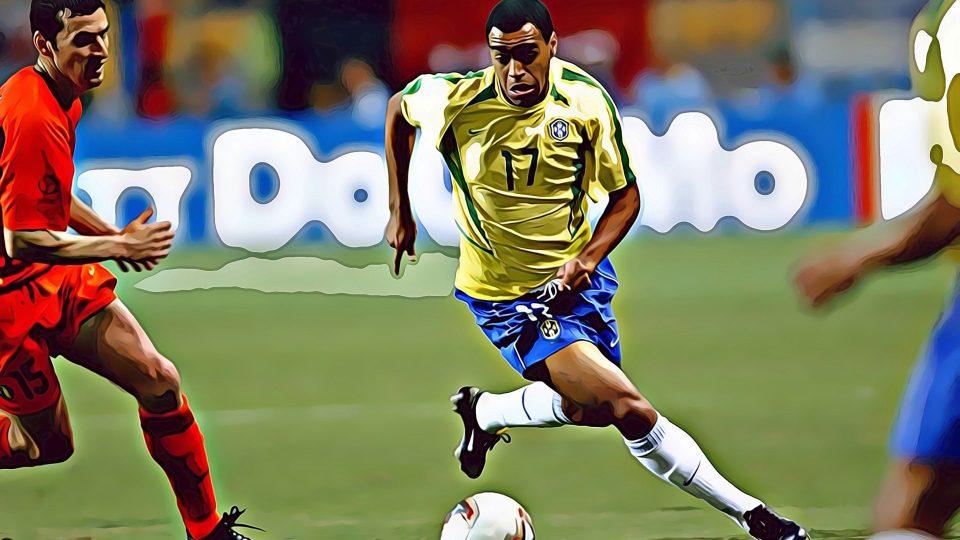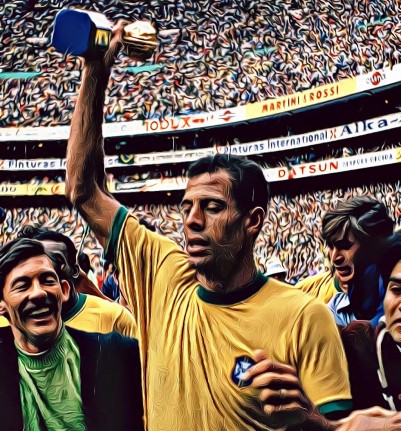

CAPITAO, LEADER... LEGEND
BACKGROUND
Carlos Alberto Torres was born on July 17 1944 in Rio de Janeiro, one of twin brothers. With his twin Carlos Roberto, brother Jose Luis and sister Maria Helena, he grew up in the old Rio suburb of Vila da Penha. His father was a public employee who knew that education was the key to a better life for his children. Francisco would come home from his office job, eat a meal then head back out into the Rio streets to spend the night as a taxi driver. This work ethic rubbed off on the young Alberto who began working by the age of fourteen, saving money each month to go to the local cinema in Vila da Penha where he was obsessed with old Westerns. Not surprising for one renowned for his tactical awareness and leadership skills, Carlos Alberto shone academically at the junior Escola Grecia and then Colegio Souza Aguiar in Vila da Penha, before moving on to college at the local Educandario Santa Fatima. Outside of their academic schedule, all three of the Torres brothers played football but it was the bigger, faster, more physical Carlos Alberto who was spotted by coaches from Fluminense. He began playing as a juvenil, or junior, at the age of fifteen. The decision to play for the famous red, white and green stripes flew in the face of his passion for their arch-rivals, the red and blacks of Flamengo. His boyhood idols were Didi and Nilton Santos, the black rock at the heart of the national team’s World Cup defence.


EARLY CAREER
RISING THROUGH THE RANKS (1960-1963)
Carlos Alberto Torres wasn't actually the first 'Carlos Alberto' to play for Fluminense. In an unfortunate event in 1914, Carlos Alberto, a mulatto playing for Fluminense, decided to cover himself in face powder to disguise the color of his skin. This ultimately led to one of the club's nicknames, pó de arroz, which is the Portuguese for 'white powder'. Although, like almost all football teams in Brazil at the time, racism was common among Fluminense supporters, Fluminense had a long history of black players even before football became a professional sport. With his father’s encouragement, Carlos Alberto had soon quit his job as an office boy and committed himself to football. As a juvenil, Carlos Alberto trained with the professionals and had professional coaching. Vast crowds would watch even the preliminary games he played in. If a professional was injured he would be drafted in as temporary cover. Despite a slow start to his career as a young footballer, taking it up rather late in his life - he had caught up rapidly and was now primed to make his debut for the first team.BREAKS INTO FLUMINESE FIRST TEAM
1963/1964 Season
Aged 19, the young Carlos Alberto instantly made a name for himself during his debut season and looked set to be the replacement for Djalma Santos in the Brazillian national set up. He had to break through what was a very competitive Fluimenese set up to get to the First Team. From the 1950s, with the creation of the Rio-São Paulo Tournament, the forerunner of what eventually would become the national championship, Fluminense established itself regionally by winning the tournament title in the years of 1957 and 1960 (just three years before Carlos Alberto was to make his debut). Even this early into his career it was clear to observers that he was blessed with great tackling technique and reading of the game, but also for his outstanding ball control, dribbling and playmaking abilities. Whilst these qualities were indeed rare for a defender he would admit that at this stage of his career he was merely the carrier of the torch for the next stage of the full back revolution instigated by his predecessors Nilton and Djalma Santos.
1964/1965 Season
During his second season at Fluminense, Carlos Alberto won his first trophy at club level - the Campeonato Carioca of 1964 - the annual football championship of the state of Rio de Janeiro, Brazil where they had to overcome the likes of Botofogo (the side of Garrincha albeit he was arguably past his prime by this point having peaked in 1962).1965/1966 Season
In 1966, he won the Taça Guanabjava, thus ensuring they represented Rio de Janeiro in Taça Brasil de Futebol (the Brazilian national football championship - considered by many historians as the most important football tournament in Brazil at the time). This was to prove to be Carlos Alberto's final season at Fluminense as frustration set in with regards to his lack of progress on the international stage.
Despite winning much admiration for his performances for his boyhood club and making his international debut marking Bobby Charlton at the Maracana during the 1964 Nations Cup, it wasn't enough for him to dislodge Djalma as first choice right back for the 1966 World Cup. Failing to make the squad altogether, a crestfallen Alberto vowed to make Brazil regret their grave error and cement himself as a Brazilian great. In order to do this, starring at Brazil's answer to Real Madrid was the answer... there was no way the selectors would ignore him if he shone in the white shirt of Santos FC (home of Pele).
PEAK PHASE
SANTOS FC (1966-1970)
Carlos Alberto was only 22 when he moved to Santos, but he made history in becoming the most expensive footballer in Brazilian history (he cost 200,000 cruzeiros). He rapidly developed a strong lifelong friendship with the face of Santos, Pele no doubt helped by the fact that they lived in the same building. Whilst it seems incredulous to claim Santos were going through somewhat of a 'slump' during the mid-1960's, there is no doubt that between 1965-1967 - there was an element of transition at the club, with a less dynamic Pele necessitating a shift tactically and the side naturally dropping their standards a tad after being exposed to so much success. Carlos Alberto's arrival breathed new life into the side and ensured the club would once again embark on a journey towards sustainable success.His camaraderie with his team mates was natural and his charisma was alluring.
Despite his tender age, he gave off the aura of a man much wiser than his years and Santos deserved great credit for recognising these skills within Carlos Alberto and appointing him captain in place of the outgoing retiring legend Zito (double world cup winner) in 1967. There was no challenge to his appointment, with the players in admiration of his confidence citing his tendency to talk during games - forever calling the attention of his team-mates, giving advice. As captain, he led Santos to a number of successes winning the Recopa Sul-Americana (1968), Taça de Prata (1968) and the Paulista Championship in 1967, 1968, 1969 and 1973. The national team soon called again, eager to make amends after the debacle of 1966. Such was their eagerness to make up, Carlos Alberto was entrusted with the captaincy of the Brazil. This capped an amazing turnaround from National Team reject to being appointed the captain of both the leading club and nation in the footballing world.
LEADERSHIP BEFORE 1970 WORLD CUP
The first test of that leadership came in the chaotic aftermath of the Saldanha affair. Carlos Alberto had found little to fault under Saldanha’s management, hardly surprising since he had built his early sides almost entirely around Santos players. At one stage in 1969 the captain led an all-Santos back five including goalkeeper Claudio, Djalma Dias, Joel and Hilton. With Pelé and Edu the Santos contingent reached seven. However seemingly out of nowhere, Saldanha’s relationship with Pele disintegrated. Strange comments about Pele's eyesight seemed to indicate that the pressure of leading Brazil becoming too much for him though the political landscape no doubt also played a role in Saldanha's eventual demise and peculiar behaviour.The captain could not condone his treatment of his friend and clubmate Pelé and was instrumental in ensuring Pele remained in the international set up. His influence was not to end there, as under the new manager Mario Zagallo... the side's morale which had been crushed towards the end of the previous regime was showing no signs of picking up under new management.
In the second of Zagallo’s matches against Chile, the instability in the dressing room was affecting some players’ performances. As Brazil once more failed to gel, Jairzinho and Roberto were ordered off following a mass brawl with Laube and Silva. The match was held up for twelve minutes as officials separated the players. Carlos Alberto took it upon himself to calm the side’s nerves, equalizing Castro’s eighteenth-minute goal early in the second half.
The reprieve was short lived as following a dismal 3–1 win over a local, ‘Mineiro’ selection in Belo Horizonte, Minas Gerais, and another goalless draw, this time at the Morumbi in Sao Paulo against World Cup finalists Bulgaria, the squad was reaching breaking point in terms of morale. Enough was enough and Carlos Alberto could take no more - it was time to take matters into his own hands.
With Pelé and Gérson, Carlos Alberto formed the team’s holy trinity. On the night of Tuesday, 28 April, in Pelé’s room at the Hotel Paineiras in Rio, they held an hour-long meeting that effectively moulded the course of events over the next two months. With Zagallo seemingly unwilling to share his thoughts on specific tactics, they chose the team and the pattern they wanted to take on to the pitch for their final match before leaving Brazil, against Austria at the Maracana the following night.

Afterwards the trio had a meeting with Zagallo who, in turn consented to let them try their formation. He told them he would watch from the stands where he would reserve the right to change tactics via radio conversations with Mario Americo. Félix had been told of his reinstatement over Ado and Leao in goal the previous night. It was only in the dressing room on the following evening that the remainder of the team were made aware of the changes.
Piazza, brought in for Joel, was told he would be playing as a fourth defender only minutes before he took the pitch. A fired-up Gérson gave the final pep talk. Rivellino scored the winner in a 1–0 win. Far more importantly, however, the side rediscovered the shape and fluency it had lost since Saldanha’s departure. Of the team that played that night, only Rogério, substituted for his great rival in the right wing position, Jairzinho, would not make it all the way to the finals in Mexico.
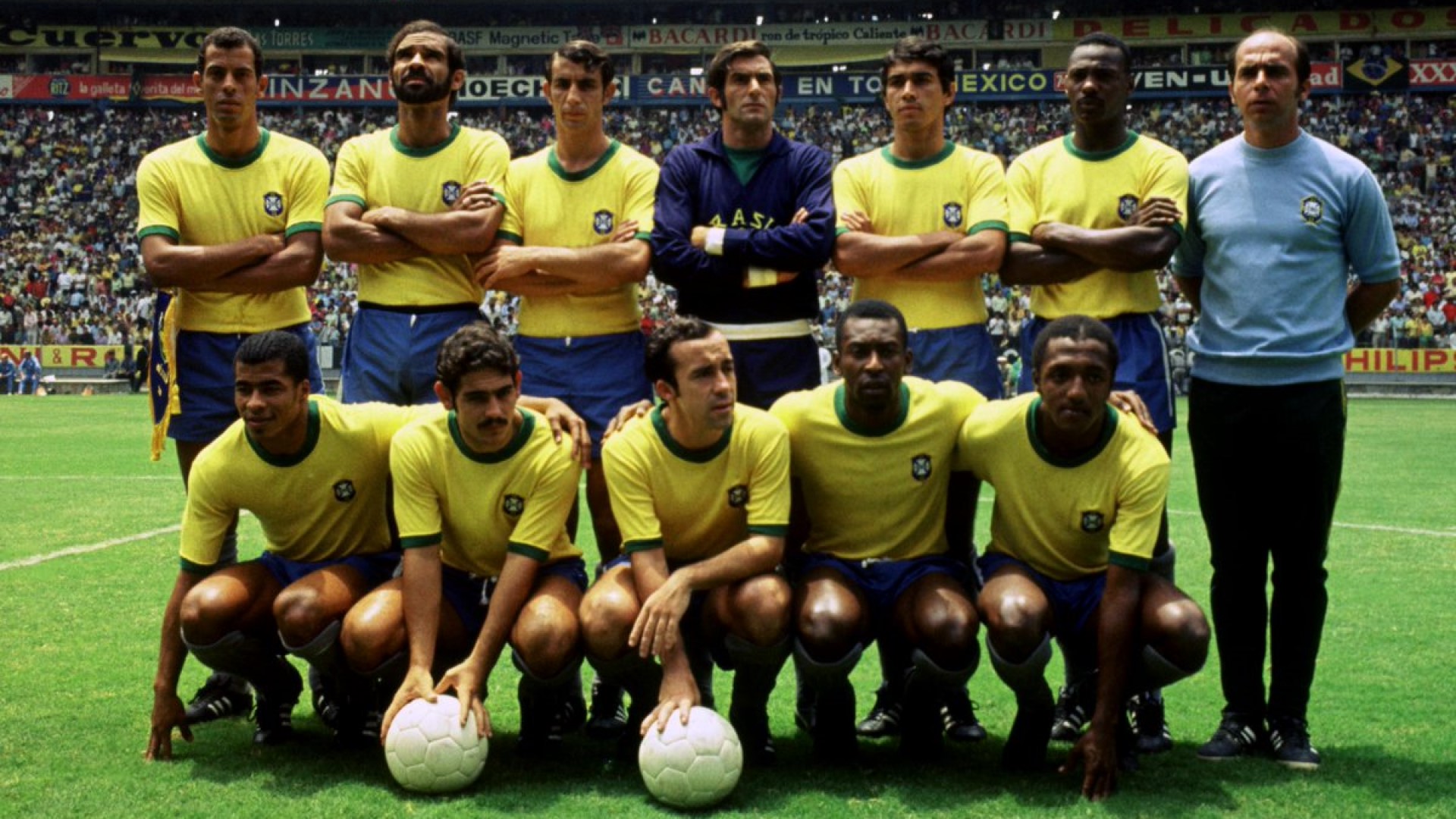
THE 1970 FIFA WORLD CUP
Group Stages
In the first match, against Czechoslovakia, Pelé gave Brazil a 2–1 lead, by controlling Gerson's long pass with his chest and then scoring. In this match Pelé audaciously attempted to lob goalkeeper Ivo Viktor from the half-way line, only narrowly missing the Czechoslovak goal. Brazil went on to win the match, 4–1. In the first half of the match against England, Pelé nearly scored with a header that was spectacularly saved by Gordon Banks with Carlos Alberto starting the move off with a sumptuous pass with the outside of the foot.
Throughout the tournament, Carlos Alberto caught the eye with his ability to read and deal with all manners of attacking play down his flank and even in the box. He was cool, calm and composed, aggressive in the tackle when he needed to be but never looking hurried or rash. He was a clean but tough tackler, and demonstrated excellent use of his body to get in between players and the ball.
Quarter Final
In the Quarter-Finals, Brazil were to face the red hot Peruvians who were arguably even more easy on the eye than the Brazilians. Brazil keen to stamp their authority stormed into a 2-0 up inside 15 minutes through goals from Rivellino and Tostao. Peru pulled one back through Gallardo, who briefly escaped Carlos Alberto and shot from an impossibly tight angle yet managed to squeeze it in at the near post due to poor goalkeeping.
Keen to atone for his role in the concession of a goal, Carlos Alberto redoubled his efforts to marshal the defence and ensure Peru were unable to grab a quickfire second before half time. After the break, Tostao scored again to restore Brazil’s two-goal advantage only to see the extremely talented Cubillas make it 3-2. Before Peru could muster any momentum, within 5 minutes, Jairzinho had put the final nail in the coffin after producing a composed finish which capped off some wonderful movement down the inside left channel.
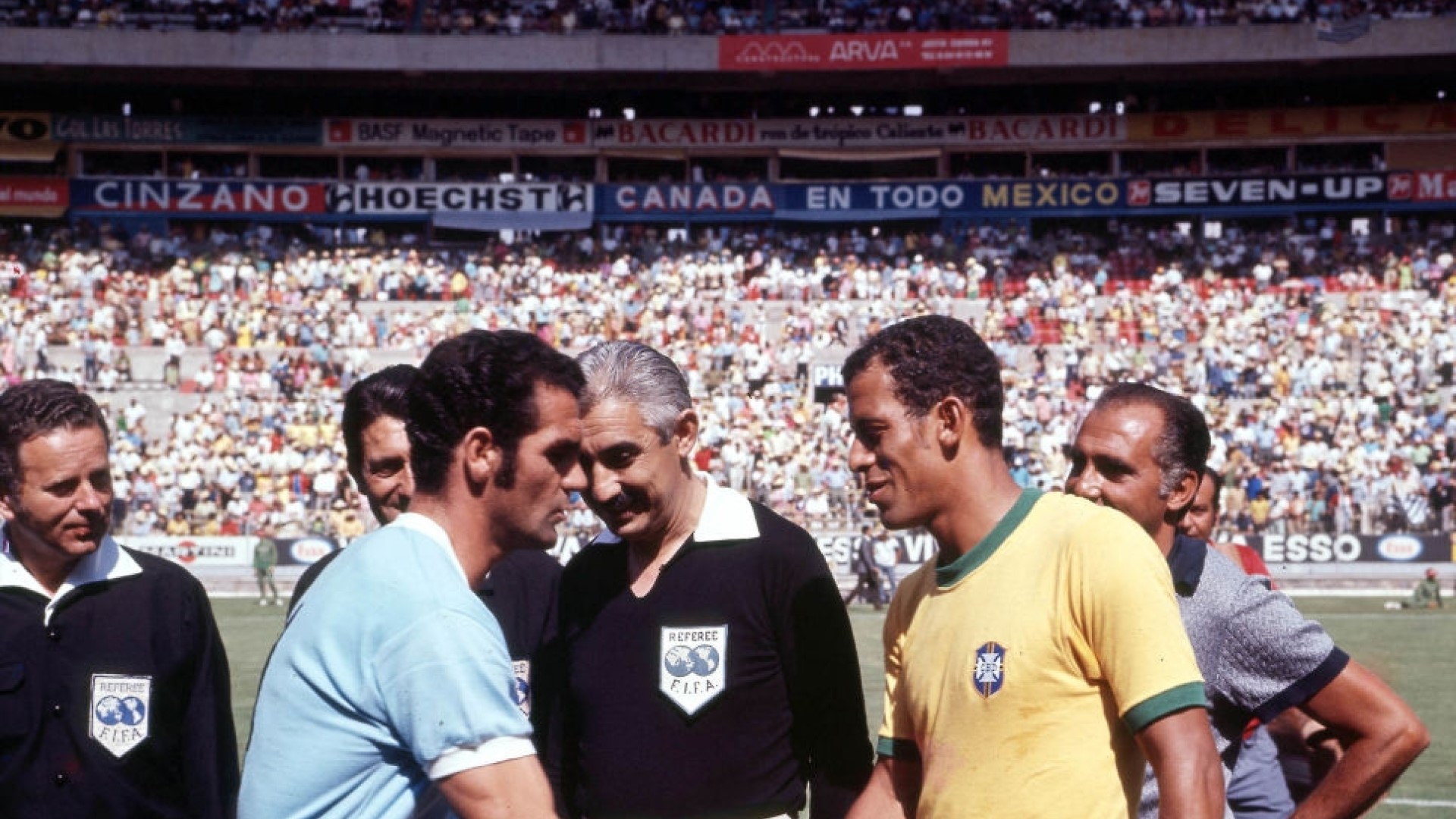
Semi Final
In yet another all-South American tie Brazil were to come up against feared historic rivals Uruguay. Much of the prematch buildup had centred on the 1950 World Cup Final where the much fancied Brazilians had been found wanting when forced to confront the never-say-die approach of the Uruguayan's. The game initially went the way the media had speculated with Brazil conceding early and struggling to break down the tough Uruguayan defence. However this Brazil team was not going to fold over and allow the media to write their obituary.
They had to fight tooth and nail to remould the team under Carlos Alberto's leadership and his stoic presence reassured the rest that they could overcome any obstacle despite the early setback. Brazil kept going and eventually they struck just before half time through a wonderfully worked move down the left which ended in Clodaldo ghosting into the box to level the scores. After that Brazil never looked back despite some stiff resistance from the Uruguayans and eventually broke them down in the final 15 minutes to score two goals and secure their place in the final.

The Final
Brazil were seeking a third win after their 1958 and 1962 World Cup victories, but were facing off against Italy who also had two championships. The winner would earn the right to retain the Jules Rimet Trophy permanently. Brazil started strongly with Pelé scoring the opener, with a header over Italian defender Tarcisio Burgnich. Yet Italy were still very much in the game and earned a well-deserved if rather fortunate equaliser after a dodgy attempt at a backheel by Clodaldo let in Boninsegna who capitalised on the uncertainty at the heart of the Brazilian backline.
"Riva in particular was proving to be a menace and Carlos Alberto had to be alert to ensure the right side of the defence was capable of withstanding his ferocious left foot."
As both teams battled for supremacy it was clear that Italy were in no mood to unleash their full-backs with Facchetti man-marking Jairzinho. This decision would ultimately hurt the Arruzzi as it allowed Carlos Alberto to increasingly take control of the right flank. With the Italians now being run ragged, Gerson took advantage by taking a surprise shot from the edge of the box which arrowed into the bottom corner. Pinned back, the Italian's couldn't get out and they conceded another as Pele's cushioned header landed perfectly in the path of the prolific Jairzinho.
"With the champagne no longer on ice, Brazil strutted their stuff and combined to produce arguably the greatest team goal of all time"
Pele and Carlos Allberto had built up an intuitive understanding through their companionship at Santos and thus by the time a flowing nine-man move had reached Pelé just outside the penalty area, Carlos Alberto was arriving to his right like a runaway train. He didn't need to shout, as the pass was rolled perfectly in front of him - bouncing just a little to allow Alberto to catch it perfectly with a trademark outside of the foot thunderbolt. A picture perfect goal to end what was the picture perfect World Cup campaign and all in glorious technicolor.

LATE CAREER AND RETIREMENT
END OF SANTOS CAREER (1970-74)
After the highs of the 1970 World Cup, it was back to domestic duty for Carlos Alberto but he rapidly began to deteriorate in a physical sense. Despite his own personal woes, he captained Santos to a final Paulista Championship in 1973. Unable to overcome a persistent knee injury, Carlos Alberto was to be denied the opportunity of defending Brazil's World Cup title and was tragically ruled out of the 1974 World Cup. When he eventually regained match fitness, his speed had been compromised. However, his ability to read the game compensated for his loss of pace and allowed him to make a successful transition to centre back.
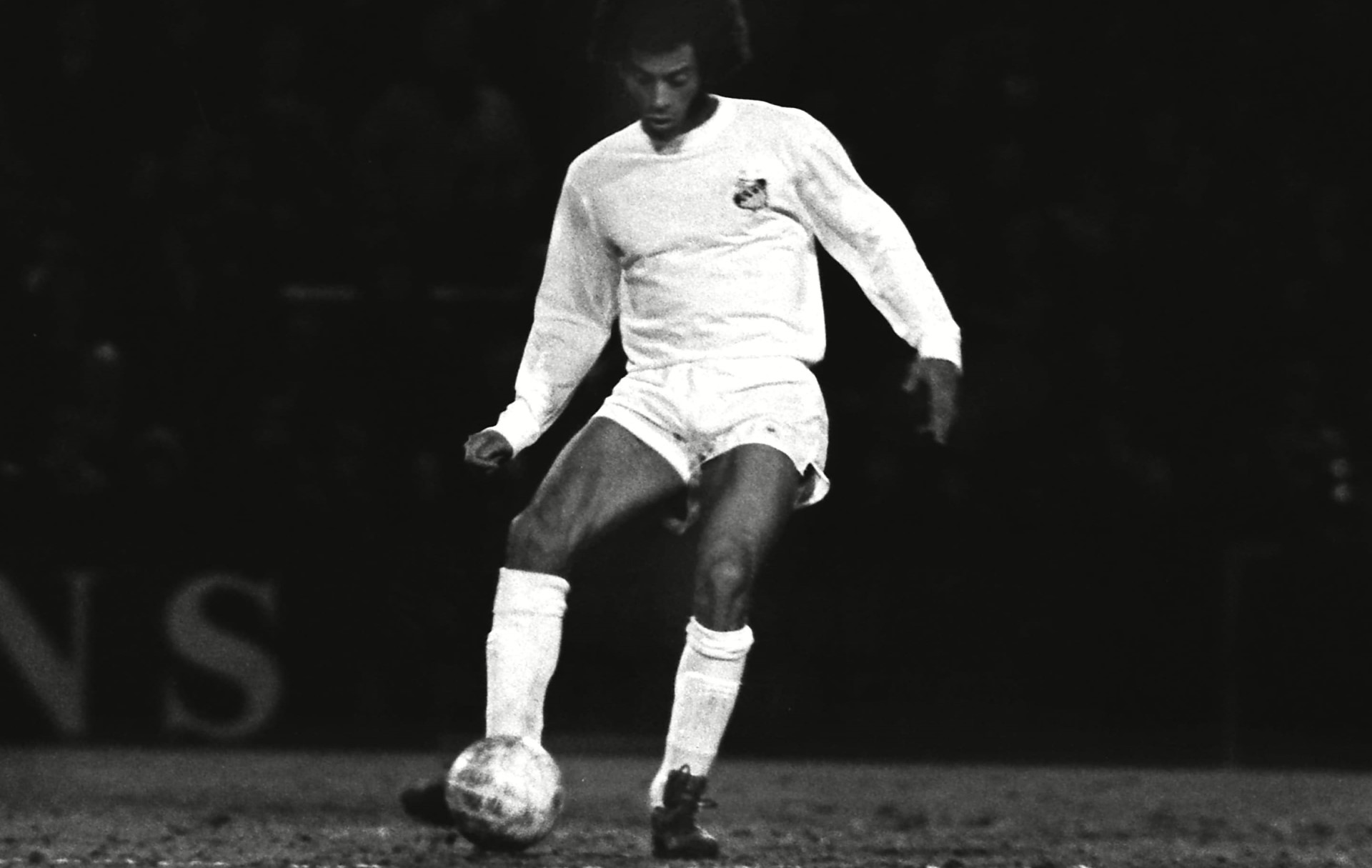
FLUMINENSE RETURN (1974-1976) FLING WITH FLAMENGO (1976-1977)
In 1974, he returned to Fluminense and helped the team capture two consecutive Campeonato Carioca championships. He then made a final move to Flamengo, the club he always supported as a boy. In 1977, he was selected by Claudio Coutinho to captain the national team for the first three qualifiers for the 1978 World Cup. He acquitted himself well despite those being the first competitive internationals he had played for almost seven years. However not keen to risk his legacy and reluctant to replicate Djama's disaster at the 1966 World Cup, Carlos Alberto listened to his body and retired from international and Brazilian football.JOINS PELE TO PLAY THE NORTH AMERICAN SOCCER LEAGUE (1977-1982)
In 1977, despite his success in Brazil, Carlos Alberto Torres decided to move to the New York Cosmos. He arrived on the day of the New York City blackout where he was reunited with his friend and partner Pelé and helped the Cosmos capture two consecutive NASL titles in 1977 and 1978. After spending one year with the California Surf, he returned to the Cosmos in 1982 where he won his third NASL title. He played his farewell game on 28 September 1982 in an exhibition match between the Cosmos and his former club Flamengo. In 119 regular season games and 26 playoff games, Carlos scored a total of 8 goals and was an NASL All-Star five times.POST RETIREMENT
TACTICAL ANALYSIS
THE COMPLETE FULL-BACK
In the modern era, the role of the 'flank defender' i.e. full back or wing back has never been sexier. They go for bigger fees than ever before as managers have finally begun to realise the tactical importance of a defender who can also be your hidden attacking weapon out wide. However whilst this recent trend in recognising the increasing importance of these formerly unsung heroes is welcome, there is also a growing acceptance that the art of defending out wide is a lost art, and that these modern day full back or wing backs are merely 'failed' wingers, reborn as elite attacking faux-wingers designed to exploit the greater space they are afforded in the final third, by virtue of arriving unannounced from deeper positions. What makes Carlos Alberto special is that, firstly, unlike his predecessors Nilton Santos or Djalma Santos, he would not be found wanting in a modern day system. He would be the ideal Pep Guardiola or Jurgen Kloppesque full back, as he was so gifted on the ball and he could also bomb forward, score goals and put in good quality crosses. Admittedly his preference was to be involved with the build up play and offer an underlap option, but he certainly had the skillset to also make the most of when he was expected to overlap. Secondly, what Alberto brings to the table that none of his modern day successors at right back can match is defensive solidity of a truly elite level. He could defend crosses, he could tuck in and act as a third centre back (in fact he was a centre back during the 70's once he declined physically) and he was very hard to beat in 1 v 1 battles out wide. In short, Carlos Alberto wasn't the best attacking full back the game has ever seen, the one who contributed most to the build up play nor was he the best defender ever seen in a wide position... but such was his talent, he'd be within the top 5-7 candidates in every aspect of full-back play, which makes him the most complete wide defender in the history of the game. When you consider all the above and then remind yourself just how much his leadership played a role in Brazil 1970's winning campaign and how much the likes of Pele looked up to him - you begin to realise this was one of the all time great footballers irrespective of position... period,ANECDOTES & QUOTES
MANAGERS
Carlos Alberto was without doubt one of the best right backs in footballing history, a leader at the teams he played with, Santos, Flamengo, Fluminense, and a leader at the 1970 World Cup alongside Pele and Gerson.
Santos FC are saddened by the death of idol Carlos Alberto Torres. He played 445 matches and scored 40 goals between 1965 and 1975 and is considered the greatest full back in the club’s history.
TEAM MATES
I am deeply saddened by the death of my friend and brother. Dear God, please take care of our ‘Capitao’. I remember the times that we were together at Santos, Brazil and the Cosmos, where we formed a winning partnership. Rest In Peace”
He wasn’t a captain like any other, heads or tails, he was The Captain. He wasn’t Carlos Alberto. He was the man. We all lose something with the death of Carlos Alberto
RIVALS
“Heidi and me are deeply shocked. Carlos Alberto was like a brother to me, one of my best friends” .
"I had the good fortune to face him on several occasions...He was a great person and a great player."
OTHER
Known as the 'enforcer', Alberto took his duties off the pitch as seriously as those on it. Vickery added: "He was the leader who had that presence. He was the one who would represent the players, go and argue with the directors. He was the one that, if anyone on the pitch needed yelling at - even his great mate Pele, he would do it."
Brazil lost the "captain of captains". A great man, a great athlete, a sensational family man and a great friend. I think that here on earth we are all sad, but in heaven they are making party for the arrival of this football angel. “The relationship with him was fantastic. With Carlos Alberto we learned a little of everything. He had a strong personality, a strong character, he was a guy who said what he thought. But he always spoke for good. “He attacked and defended with the same force. Technically, it was one of the best sides of recent times. So much so that in 1970 the fourth goal came to prove the talent he had and the way he struck the ball. “The gesture of lifting the cup, kissing the cup like a child. So no doubt he was one of our biggest inspirations, particularly as a right-back. We were trying to make Brazilian football really become the most feared football worldwide.”
IN HIS OWN WORDS...
Inflated wages received by today's players had killed their passion for the game.
I remember everything about that goal. We knew before the game it could happen, because we knew how the Italian team played. They played man-to-man on the central line. They followed our forwards. And our coach, Mario Zagallo, said to Jairzinho: 'Always, if it's possible, make a movement to the left side to bring (Italy left-back Giacinto) Facchetti with you to make space for Carlos Alberto to go forward.' It was the most beautiful World Cup goal not because of the goal, but because of how we created it I tried a few times to go there but football is interesting because we know how the opponent will play but we cannot count how many goals we will score. But towards the end of the game, Jairzinho was on the left side with Facchetti, who left his position to follow him. There was space for me on the right side. When Jairzinho received the ball from Rivelino and gave the ball to Pele my stride was totally open, and Pele waited a few seconds for me to be there and then gave a beautiful pass for me to score. Pele knew I was coming, because we had spoken about that kind of chance before the game, if Jairzinho made the movement to the left side. We only realised how beautiful the goal was after the game. The emotion, of course, when I scored that goal was incredible, but after the game, and still today, I realise how beautiful and how important that goal was because everybody is still talking about it. Nobody talks about Pele's goal, the first goal, the second goal. It is always about the fourth goal. I think it was the best goal ever scored in a World Cup. A month ago, German television came to my house and they brought a nice trophy for me because Fifa conceded my goal was the most beautiful goal in the World Cup. Not because of the goal, but because of how we created it. The goal was a little detail, but the kind of play from the defensive line was great. Anybody can score a goal, but in that move nine different players touched the ball before the goal. But I was lucky, because I scored the goal.
There was no explanation. To this day I don’t know why.


